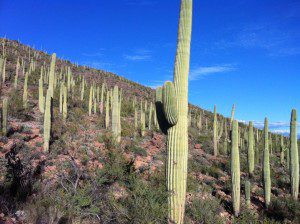“… if God cares for so much for all creatures, why didn’t God create a world in which there would be no natural disasters?”
 Terence Fretheim asks why God created a world in which bad things happen in his new book, Creation Untamed: The Bible, God, and Natural Disasters (Theological Explorations for the Church Catholic)
Terence Fretheim asks why God created a world in which bad things happen in his new book, Creation Untamed: The Bible, God, and Natural Disasters (Theological Explorations for the Church Catholic).
He opens with an observation I think few of us have thought of:
God created a world that was good, but not perfect.
His previous studies are summarized here, but the big point is quite clear and fundamentally challenges major ideas: the world was not perfect; creation was not completed; creation continued.
The question that arises here is this: Does Genesis 1-2’s creation account suggest an “openness” to God, a kind of open theism, a kind of divine-human cooperative in the ongoing “creation” and “development” of the created world?
In Genesis 1–2 we get the word “good” (with “very good”) and we hear this word as something God says of the created world. God does not say “perfect” and he doesn’t say “innocent.” God says “good.” Which means what? It corresponds to what God wanted it to be. This created world, when God said “very good,” was not static or perfect.
If it were perfect, nothing could go wrong, but things did go wrong. Humans are called to “subdue” the earth — before Genesis 3! — and that means the earth was not entirely subdued, and that means the earth was not perfect. It was good and was moving toward perfect.
God’s creation was to bring order out of disorder. Humans are called to participate with God in the continuing subduing of the disorder of creation. The world need work, and we are called to participate with God in that work of bringing order to creation.
God in some sense hands the task over to humans. Freedom is inherent to this task — we are free to do or not to do what God calls us to do: subdue the earth, that is, bring it into the order of its creator.This tells us something about God: God shared his creation work with us, and that means the traditional view that God is in absolute control and with overwhelming power is not entirely accurate. If Fretheim’s right here, that means humans aren’t to imitate a controlling, powerful God but a sharing, cooperating God. God forms an interdependent relation with his created world.
Themes are then developed out of Genesis 1-2:
God created out of already existing materials — which is the point of Genesis 1:1-2.
God calls already-existing creatures to bring about new creations — “let the earth bring forth…”.
God invites the divine council to participate in the creation of humans — “let us create…”
God involves the human in still further acts of creation — tilling ground, be fruitful, Eve “created a man child” in Genesis 4:1, Adam names…











